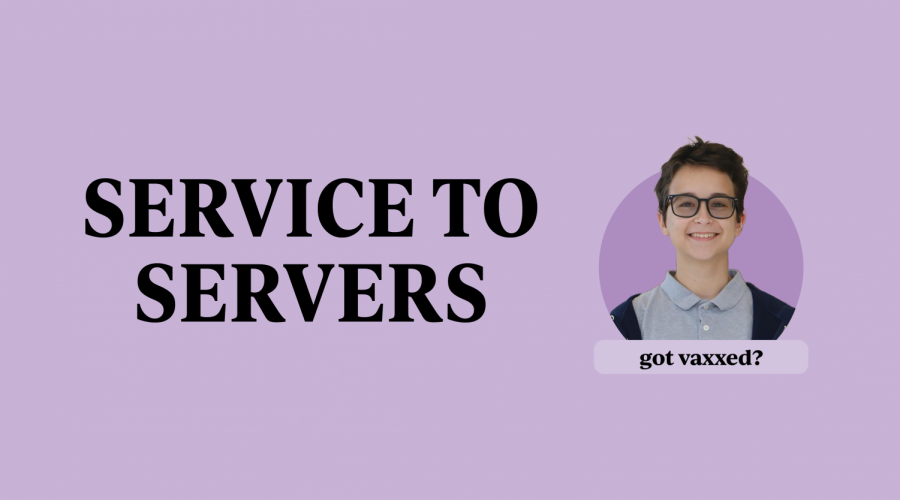If you’ve been anywhere or tried to buy anything within the past few months, you’ve probably heard the phrases, “supply chain issues,” “staffing issues” or “labor shortage”— and you’ll probably still be hearing them for months to come, too.
I work weekends as a barista at a Starbucks in Indianapolis, one which is now closing completely on Mondays for a few weeks because we simply lack the staff capacity to open, and I’d advise you to check the hours of your local Starbucks before making a visit as well. This is not an isolated issue. The Washington Post reported there are about 10 million open jobs right now in the U.S. and 8.4 million people still unemployed and looking for work.
There are a lot of reasons for this. For one, a lot of these job openings are in fields that don’t align with what the unemployed were doing before the pandemic struck. For another, those misaligned fields come with a variety of risks, increased exposure to COVID-19 being the biggest.
But it’s more than just that. Americans are having a reckoning as far as what kind of jobs they want to work, and if you’ve ever worked in food service or hospitality, this probably isn’t a huge surprise to you. Starbucks is a relatively good place to work, but the truth is it often feels as though I’m working within a system that fundamentally does not value me as a human being. I see a lot of people in a day, and masks are no longer required in my store and many others, which puts me at increased risk of contracting COVID-19, even though I’m vaccinated. I and my coworkers frequently end up with burns because the coffee, hot water and ovens are kept at very high temperatures. The pay is low enough that many of my coworkers— including students and parents of two or three— often work one to two other jobs to stay afloat. On top of that, customers can be impatient, rude or even outright mean.
It’s simply not the kind of place people, especially those who have at-risk family at home, want to work. And, ultimately, it comes down to a lack of compassion and empathy for one another as human beings, on a corporate level all the way down to individual consumers— a problem that existed before and perpetuates the pandemic.
Employers can exercise compassion by raising wages, enforcing mask policies, making it easier for employees to take days off due to illness and reducing workplace stress and safety hazards.
But this is up to consumers, too. Treat your baristas, waiters, hotel clerks, maintenance staff and others with decency and understanding. Wear your mask (over your nose) and get vaccinated.
It comes down to every individual to create a system that values human lives— one in which humans can safely and comfortably work.
The views in this column do not necessarily reflect the views of the HiLite staff. Reach Sam Hawkins at shawkins@hilite.org. To read more works by Sam, click here.

































![AI in films like "The Brutalist" is convenient, but shouldn’t take priority [opinion]](https://hilite.org/wp-content/uploads/2025/02/catherine-cover-1200x471.jpg)









































![Review: “The Immortal Soul Salvage Yard:” A criminally underrated poetry collection [MUSE]](https://hilite.org/wp-content/uploads/2025/03/71cju6TvqmL._AC_UF10001000_QL80_.jpg)
![Review: "Dog Man" is Unapologetically Chaotic [MUSE]](https://hilite.org/wp-content/uploads/2025/03/dogman-1200x700.jpg)
![Review: "Ne Zha 2": The WeChat family reunion I didn’t know I needed [MUSE]](https://hilite.org/wp-content/uploads/2025/03/unnamed-4.png)
![Review in Print: Maripaz Villar brings a delightfully unique style to the world of WEBTOON [MUSE]](https://hilite.org/wp-content/uploads/2023/12/maripazcover-1200x960.jpg)
![Review: “The Sword of Kaigen” is a masterpiece [MUSE]](https://hilite.org/wp-content/uploads/2023/11/Screenshot-2023-11-26-201051.png)
![Review: Gateron Oil Kings, great linear switches, okay price [MUSE]](https://hilite.org/wp-content/uploads/2023/11/Screenshot-2023-11-26-200553.png)
![Review: “A Haunting in Venice” is a significant improvement from other Agatha Christie adaptations [MUSE]](https://hilite.org/wp-content/uploads/2023/11/e7ee2938a6d422669771bce6d8088521.jpg)
![Review: A Thanksgiving story from elementary school, still just as interesting [MUSE]](https://hilite.org/wp-content/uploads/2023/11/Screenshot-2023-11-26-195514-987x1200.png)
![Review: "When I Fly Towards You", cute, uplifting youth drama [MUSE]](https://hilite.org/wp-content/uploads/2023/09/When-I-Fly-Towards-You-Chinese-drama.png)
![Postcards from Muse: Hawaii Travel Diary [MUSE]](https://hilite.org/wp-content/uploads/2023/09/My-project-1-1200x1200.jpg)
![Review: "Ladybug & Cat Noir: The Movie," departure from original show [MUSE]](https://hilite.org/wp-content/uploads/2023/09/Ladybug__Cat_Noir_-_The_Movie_poster.jpg)
![Review in Print: "Hidden Love" is the cute, uplifting drama everyone needs [MUSE]](https://hilite.org/wp-content/uploads/2023/09/hiddenlovecover-e1693597208225-1030x1200.png)
![Review in Print: "Heartstopper" is the heartwarming queer romance we all need [MUSE]](https://hilite.org/wp-content/uploads/2023/08/museheartstoppercover-1200x654.png)




